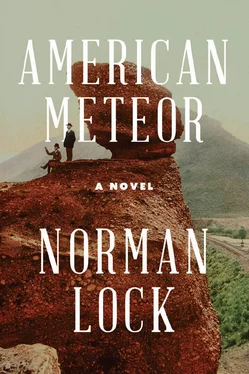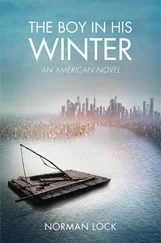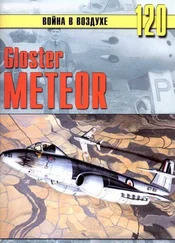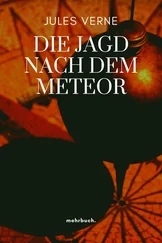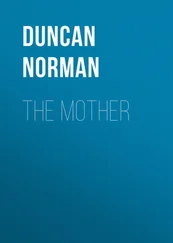“I did, sir.”
“You’ll forgive me, I’m sure, if I insist on hearing the details of your conquest. When old men lose their juice, their curiosity becomes inflamed.”
He tossed the drink down his gullet, like kerosene meant to fuel the flames of a lurid imagination. In time, I would learn to understand men like him. I met enough of his kind, and their fantasies did not always concern sexual intercourse. There were others nostalgic for their robust past: for a strong body or a mind delighting in the subjugation — by fear or humiliation — of Indians, blacks, Chinese, coyotes, bison, women. Often it doesn’t matter what, so long as prejudice has an object. Some men (some women, also, to insist on equality) are impelled to cultivate the seeds of enmity — sown how, why, or by whom, it little matters. George Armstrong Custer, for instance.
I first met him in ’74, on the Black Hills Expedition. I photographed his conquests, his triumphs, his acquisitions. I remember how, after he had killed a bear, his eyes underneath the yellow curls looked glazed and far away, like those of a man who’d just rolled off a woman’s belly. In the varnished negative, his face was gruesome, as it might have been were light to fall on it suddenly in a tomb. It is always so to see the normal tones reversed, but in Custer’s case, the effect was striking. At least, my imagination — yeasty after a disastrous winter with the Ute — found it so. Let’s say that the photograph had unmasked a man intended for an unusual destiny — an inhuman one, because it had nothing to do with ordinary men. I couldn’t foresee the Little Bighorn — I hadn’t yet met Crazy Horse — but I saw in Custer’s face the smirk of a man whose name would be writ large in our history. In that he seemed to venerate killing like a holy office, I supposed his contribution would be infamous. He had ambition, the good opinion of his superiors, and a regiment at his disposal. Otherwise, Custer was no different from a man who — his snoot full of cheap rye on a Saturday night — drags his wife by the hair around the kitchen, beats his children, kicks his dog, or wages war against a hill of ants. So perhaps Custer’s destiny was not an inhuman one after all.
I knew a man in Santa Fe, who took offense at a horde of ants in the ground behind his house. They got on his nerves, he said; they troubled his dreams and disturbed his rest. In time, they interfered with his work and threatened his livelihood. Not that they ever came inside the house — that wasn’t it. His hatred, which swelled into a fury, was unreasoning; it had no practical point or issue. He would stomp on them as they filed in and out of the hole to their nest: a black string that he made, in his madness, into a fetish. He lay awake at night, hearing them scurry on the hard earth, plotting their extermination, rejoicing in its contemplation. But the ants were indifferent to his stratagems. Unable to destroy their race by killing them singly, he blocked the entrance, flattened the hill with a shovel, dug up the nest. But always the ants found their way out again — the tribe apparently numberless. Finally, he soaked the ground with kerosene. The fire meant to be the ants’ holocaust burned down his house. The ants endured. A pretty fable.
I shouldn’t have appeased Reynolds’s appetite. I ought to have spat in his eye, taken off my idiotic uniform, and reentered the world. Had I ever been in it? But those were hard times, and I was in the wilderness. It was no golden age after all, not for upstarts who might suddenly decide they could mouth off to their betters. The Declaration of Independence was not for people like me. Poverty had not been abolished, or cruelty outlawed, or greed shamed into nonexistence. Life on the frontier was harassed by savages, plagued by sickness, made miserable by hunger and cold. Out on my own, I could expect to live considerably fewer than three score years and ten. Not being Thoreau, Emerson, John Brown, Frederick Douglas, Clara Barton, Lincoln, or Frederick Aiken, I behaved in keeping with my character and age. I told Reynolds what he wanted to know. I stoked his inferno and saw how his eyes sparked, then glazed over, like a priest’s vouchsafed a glimpse of Paradise.
Omaha, Nebraska Territory, October 24, 1866– December 4, 1866
Where the tailors worked, a German was pedaling the Singer. I wanted to tell Chen about my night inside the wagon in the middle of nowhere, how in the morning the gray plain sprawled to the encircling horizon, and about the photographer who’d fixed — he said “forever”—the light from a Swedish woman on a pane of glass. It never occurred to me to call Chen my friend; I hadn’t the habit or knack of friendship. There isn’t the sentimental strain in me you sometimes find in men whose childhood was grim. They see themselves like an urchin in a Dickens novel: a bleak heart sweetened by suffering. They look back fondly on their mistreated youthful selves. My childhood was brief and is best forgotten.
“Where’s Chen?” I asked the German, his head bent low over his work. In the noise of the machine — a brittle rattat-tat like a Gatling gun — he hadn’t heard me. I asked again, this time shouting, “Where is Chen?”
He stopped his pedaling, let the cloth rest, and raised his bleary eyes to me. He was older than Chen and looked worn, frayed, and wrinkled.
“Dead,” he replied grudgingly, annoyed by the interruption. He was paid by the piece — and what did it matter to him that the railroad had lost a Chinaman? The coolie army had grown to thirteen thousand blue-jacketed men as the tracks leaped toward Utah, in advance of the fire-breathing dragons of the New World.
“How?” I asked. He gave me an infuriating sauerkraut smirk that made me want to brain him. “What happened to him?”
“He got a pain in his stomach, vomited, and died,” said the German brusquely, turning back to his work.
I knew I’d have to put a stick of dynamite up this stiff-backed Prussian’s ass to make him talkative. I left him to his sewing and went to find the depot quartermaster.
“He died of the ‘trembles,’” he said, with a shrug that consigned Chen to the hell reserved for heathens and infidels. You’ve heard of it, I’m sure, Jay. It comes from drinking milk from a cow that’s grazed on white snakeroot.
He was in the middle of counting shovels and had no time for “Durant’s Puppy,” as I was known — with good reason, I suppose. The Irish called me “Durant’s Nigger.” They’d have had my liver on toast ever since General Jack had ordered me to blow reveille at five o’clock on any Monday morning I happened to be in Omaha. They would wake with thick tongues and big heads after a half day’s rest, which meant, for most, a booze-up in the Irish saloon. General Jack never missed an opportunity to needle the “worthless bog trotters” for proving themselves even lower than his yellow drudges.
That night, I went to see the men who’d shared Chen’s room.
“What happen Chen?” I asked in pidgin English. They stood like a quartet of Easter Island statues, poker-faced and inscrutable. I tried shouting next, as if their incomprehension were the result of ear wax. “What happen Chen?” They must have been used to bellowing white men, for they never even flinched. Frustrated, I impersonated someone with the shakes and a bellyache. The charade must have appeared comical to the Chinamen. They jabbered among themselves critically, and then one whose ear was a scorched stump laughed. Irked, I knocked him down. He was smaller than I, and I gloated to see his surprise. I left the room, haughty as a general delivering an ultimatum to a beaten foe. I was sorry for it later — that, and much else besides.
Passing the cattle pens on the walk back to the depot, I suddenly recalled a conversation I’d had with Chen.
Читать дальше
